A year and a half after release, AMD has caved in: 300 generation chipsets allowed Zen 3 upgrade
On Tuesday, AMD officially announced new AM4 desktop processors: the gaming Ryzen 7 5800X3D with 96 MB V-Cache and new “mainstream” Ryzen 4000 and 5000 SKUs for cheaper PCs. But there is one more important news associated with these processors. After more than a year, AMD has changed its policy and is officially allowing support for the latest CPUs in boards with X370 and B350 chipsets. BIOSes for such boards are on the way.
Until now, owners of these boards have only had limited options to upgrade to processors newer than the Ryzen 3000. In recent months, however, boards with Zen 3 support have started to appear (especially from ASRock), and in January AMD admitted that it might reconsider and enable support. Fortunately, this has now been confirmed and the company has officially announced that Ryzen 4000 and 5000 will be officially capable of running with B350, A320 and X370 chipsets.
The support for this will be official, but is of what AMD refers to as a “selective beta BIOS” nature. This probably has the implication that board manufacturers are under no obligation to add support to all boards, implementation will be at their will. It could probably be the case that manufacturers will release BIOSes for the most popular or more premium boards, while some low selling (or cheaper) models will no longer get the BIOS update.
However, this status has already been given to Ryzen 3000/Zen 2 support on these chipsets, and we have seen it didn’t matter much in practice in Zen 2’s case. In the table below you can see that this “selective beta support” applies to both Ryzen 4000 and 5000 in combination with the B350, X370 and A320 platforms (with the A320 ironically not officially having this support for Ryzen 3000 – but in practice they mostly work).
Support of new processors for boards with these chipsets will require a new version of AGESA code (AGESA 1.2.0.7). Previous versions deliberately blocked the old chipsets (or at least B350 and X370) causing the processor to not boot. However, once board manufacturers build a BIOS with AGESA 1.2.0.7 integrated, Ryzen 5000 should start working.
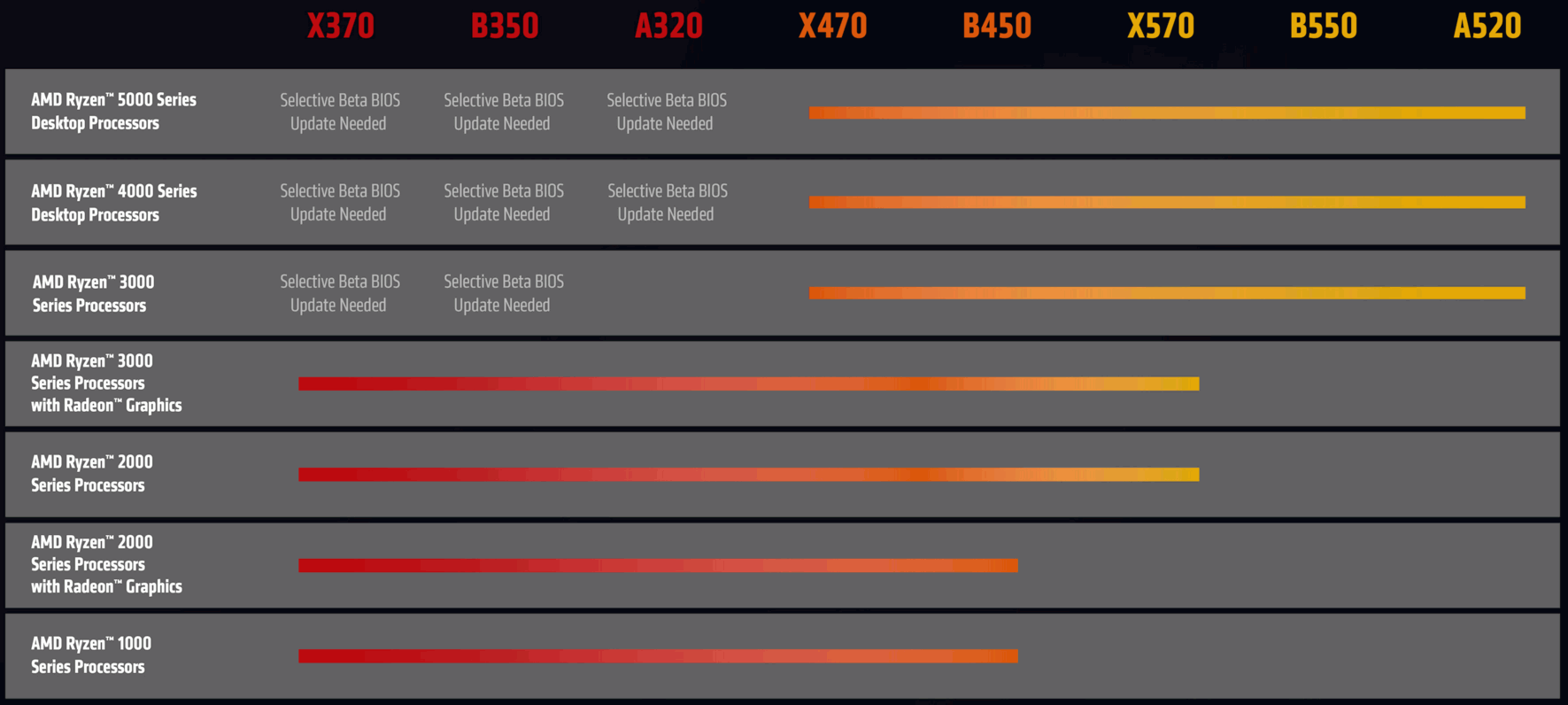
According to AMD, these new BIOS versions are expected to start coming out around next month, continuing into May. This will be roughly in time for the release of the new Ryzen 4000 and 5000 processors, which will also depend on this support. Those interested in upgrading will therefore be able to make use of these cheaper Zen 3 variants. According to some reports, even the Ryzen 7 5800X3D with chiplet cache (i.e. requiring AGESA 1.2.0.6B) could work on the old boards. Though it is probably better to wait for some explicit confirmation in the case of that specific CPU.
Support for X370 promised by Asus
In some cases, the BIOS updates could come out even earlier, for example Asus announced that it will be releasing BIOS updates for these boards starting from March 25th, but there is a catch: Asus is only talking about boards with X370 and A320 chipsets. So the status of Asus’ B350 boards is not yet clear.
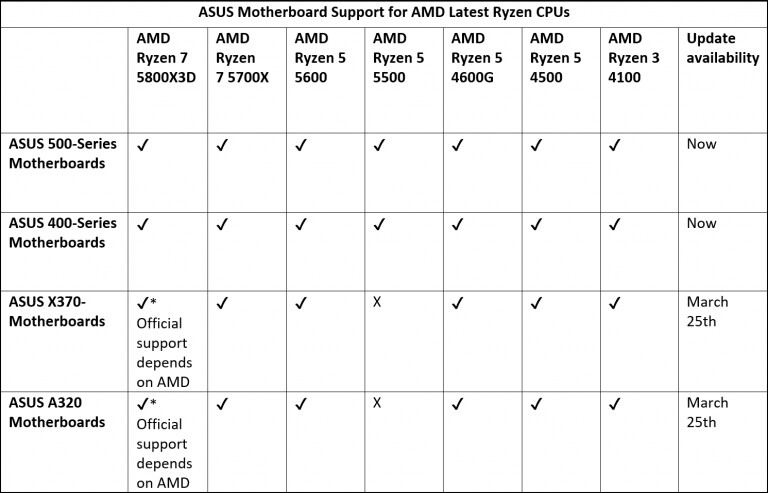
We have no information from other manufacturers yet. The update could probably be coming to ASRock’s boards, as the company had already made the new processors operational in their B350/X370/A320 boards before this move by AMD. Gigabyte and MSI have been more careful with their support but have still released support for a few boards prior to AMD’s announcement. Based on that we can hopefully expect some official BIOSes with AGESA 1.2.0.7 too. However, the fact that Asus (so far the vendor least supportive of these upgrades) has stepped up may mean that these brands will also release more BIOSes with support for the new processors so as not to be left behind.
Sources: AMD, HardwareLuxx, techPowerUp
English translation and edit by Jozef Dudáš, original text by Jan Olšan, editor for Cnews.cz
⠀
- Contents
- A year and a half after release, AMD has caved in: 300 generation chipsets allowed Zen 3 upgrade





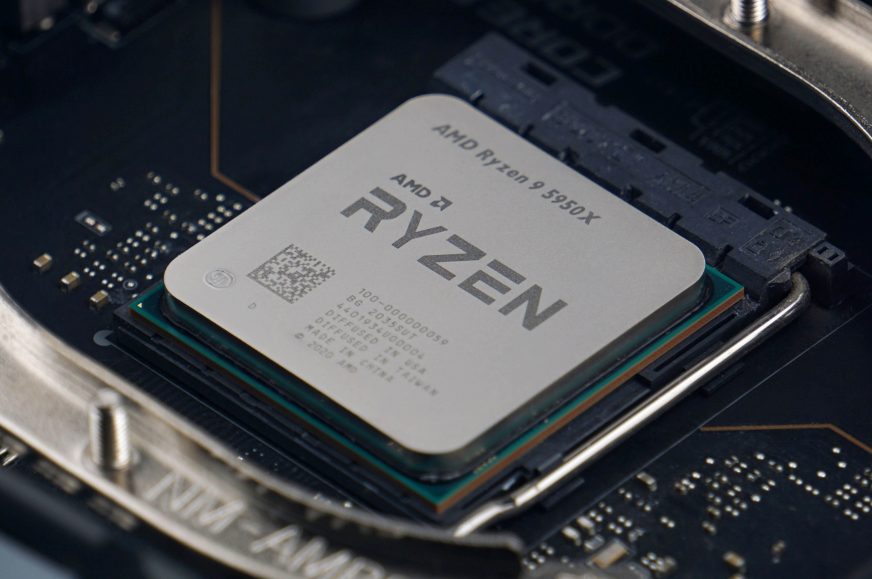

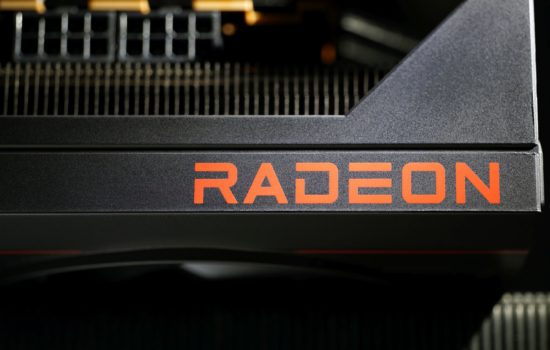


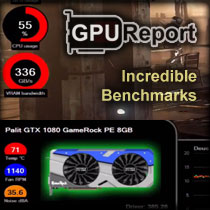

Just installed beta x370 bios 8503 support for 5000 this morning. Everything is working well so far. Will test stability more later.